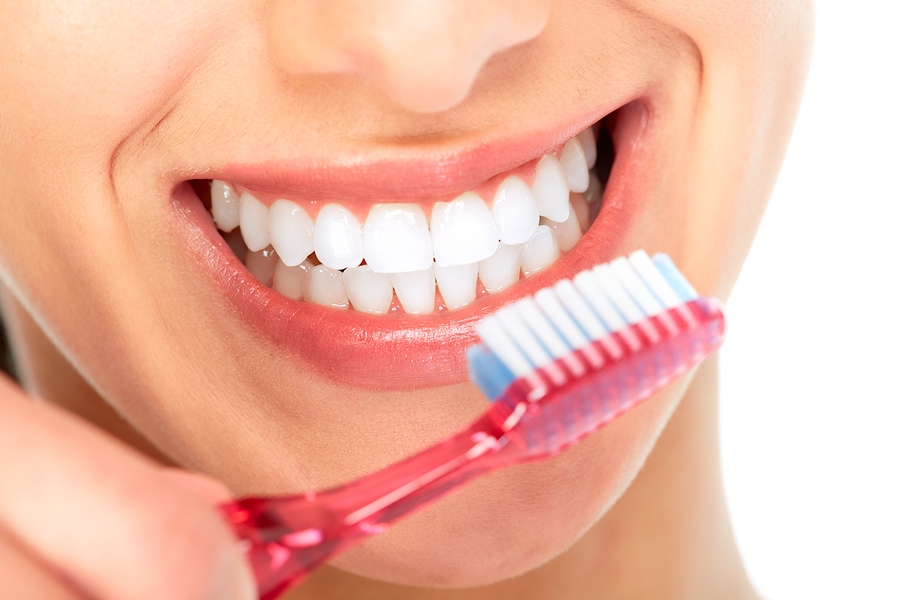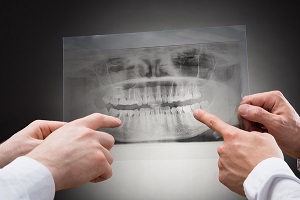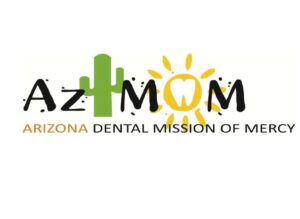
by Dr. Jacqueline S. Allen | Jan 18, 2017 | Blog, Dentistry, Endodontics, Endodontist, Phoenix Endodontic Group
 When we make an appointment to see an endodontist, there is usually a pressing reason to do so: an infected tooth needs a root canal, a tooth has been dislodged or knocked out and needs to be placed back in the mouth, etc. While we can’t always avoid situations that lead us to needing endodontic treatment, there are actions we can take that will lower our risk of suffering infected or damaged teeth. Here are a few dental care tips to get your new year off to a great start.
When we make an appointment to see an endodontist, there is usually a pressing reason to do so: an infected tooth needs a root canal, a tooth has been dislodged or knocked out and needs to be placed back in the mouth, etc. While we can’t always avoid situations that lead us to needing endodontic treatment, there are actions we can take that will lower our risk of suffering infected or damaged teeth. Here are a few dental care tips to get your new year off to a great start.
Dental Care Tips for 2017: Priorities for Protecting Your Teeth!
- Prevent tooth decay. Help your natural teeth remain strong by protecting them from plaque by brushing twice daily and flossing once a day. The way your toothbrush is held makes a difference as to how effective your brushing is. The right way to brush your teeth is by holding your toothbrush at a small angle against your teeth. Don’t brush too hard – that just irritates your gums.
- Take care of your gums. Speaking of gums, if you skip out on building a daily oral hygiene regimen and don’t show up for your regular dental check-ups – which gives dental professionals a chance to examine the state of your oral health and clean your teeth thoroughly – you may end up with a gum disease such as gingivitis or periodontitis. Gum diseases produce almost no outward symptoms until they are quite advanced, so it’s important to focus on prevention and receiving regular dental care.
- Protect your teeth from damage. There’s a lot you can do to prevent your teeth from becoming damaged. First and foremost, if you play a contact sport, use a mouth guard. Teeth can also become cracked or chipped through grinding one’s teeth (bruxism), or biting down on a food such as nuts or hard candy. Sometimes the damage to your teeth is not visible to the naked eye; it’s always a good idea to have your dentist examine your teeth if you have symptoms such as only being able to chew on one side of your mouth due to pain, or having a tooth that’s extra sensitive to hot or cold foods.
“Even though proper dental care can’t guarantee that you won’t need to see an endodontist in 2017, it will improve your dental health overall, and that should help you bounce back from any challenges to your teeth that might come your way,” says Dr. Allen, who practices with the Phoenix Endodontic Group.
by Dr. Jacqueline S. Allen | Nov 7, 2016 | Blog, Dentistry
Many of the patients we see here at Phoenix Endodontic Group have some form of dental insurance coverage. These benefits can make affording needed treatment much more feasible for many of our patients. However, as a patient with insurance, it is important to understand that simply having coverage does not guarantee the specific services you need will be paid for or covered by your dental plan. Here at Phoenix Endodontic group, we cater to our patient’s specific oral health needs. We feel it is important our patients understand their individual needs sometimes do not fit within the constraints of plan used to cover an entire group.
Two of the most common misassumptions by patients regarding their dental insurance are first, that their dental insurance covers all dental procedures (codes) and secondly, their dental plan will cover the entire cost of a specific procedure or treatment. Most dental plans are contracted between a patient employer and an insurance company. This means the employer and the chosen insurance company agree upon what procedures will be covered and how much the plan will pay for these procedures. If you have questions about your plan or coverage, please contact your insurance company or employer.
It is possible that your dentist may recommend treatment that is not covered by your dental plan. Here at Phoenix Endodontic Group, we are healthcare providers first, and our patient’s oral health is our number one concern. Decisions made regarding treatment should be done with the advisement of your dentist, and not dictated by insurance.
Below are some key terms used when discussing dental insurance. Being familiar with these terms can help you better understand your coverage.
Plan Frequency Limitations
A dental plan may limit the amount of times it will pay for or cover a specific service. However, some patients may need a service more often than others to maintain oral health. For example a plan may only pay for two exams per year. A patient may have already used those exams with their general dentist and may not have coverage for a third exam when they see a specialist (for example an Endodontist). Patients should make treatment decisions based on what is best for their health, and not allow treatment decisions be dictated by their insurance.
Coordination of Benefits (COB) or Non Duplication of Benefits
These terms are applicable to patients with dual coverage, or are covered by more than one dental plan. The sum of benefits paid from all insurance plans should not be more than the total charges for service rendered. Although a patient is covered by two or plans, this does not guarantee that all the plans will pay for services rendered. Sometimes, none of the plans will pay for treatment needed. Each insurance company handles COB in a specific way and it is important you check with your plan for details.
Not Dentally Necessary
Most dental insurance plans sat they will only cover procedures considered to be medically or dentally necessary. However if the claim is denied for this reason it does not mean the services were not necessary. If you plan rejects a claim because a service was not deemed not “dentally necessary” you can file an appeal. Remember treatment decisions should be made by yourself and your dentist.

by Dr. Jacqueline S. Allen | Oct 31, 2016 | Blog, Dentistry
 Having dental insurance or a dental benefit plan can make affording needed dental care much easier. However, most dental benefit plans do not cover all necessary dental procedures. It is important for patients to understand their dental plans, and covered benefits are not designed around what treatment their dentist recommends or what services that specific patient needs. An individual’s coverage is based on how much their employer pays into the plan. When considering dental treatment, insurance coverage and dental benefits should not be the only consideration. Treatment should be determined by the patient, their dentist, and the patient’s specific dental needs.
Having dental insurance or a dental benefit plan can make affording needed dental care much easier. However, most dental benefit plans do not cover all necessary dental procedures. It is important for patients to understand their dental plans, and covered benefits are not designed around what treatment their dentist recommends or what services that specific patient needs. An individual’s coverage is based on how much their employer pays into the plan. When considering dental treatment, insurance coverage and dental benefits should not be the only consideration. Treatment should be determined by the patient, their dentist, and the patient’s specific dental needs.
How Dental Plans Work
Most commonly, dental plans are a contract between your employer and an insurance company. The chosen insurance company and employer agree on the amount your plan will pay and what procedures are covered. Often, you may have dental care needs not covered by your plan. Covered services are based on the dental plan you have.
Being a healthcare provider first and foremost, your dentist’s top priority is your oral health and aiding you in taking care of your teeth. Our office will file claims to your dental plan as a courtesy to you. The amount of the bill for whatever reason not covered by insurance is your responsibility.
To help you understand your coverage and benefits listed are some key terms used when discussing the features of a dental benefit plan.
Annual Maximums
This is the largest dollar amount a dental plan will pay during the year. You are expected to pay any costs higher than the annual maximum as well as any copayments. Most dental plans run on a calendar year (Jan-December) and benefits renew January 1st. However some plans run on a benefit year and the dates of benefit renewal vary. It is important to check with your insurance company to see when your benefits renew. It is also important to know that annual maximums are not always updated to keep up with costs of dental treatment. If you feel your annual maximum is too low please consult your employer and or dental insurance company.
UCR (Usual, Customary, and Reasonable) Charges
UCRs are the maximum allowable amount that will be covered by your plan for a specific service/s. The term UCR makes it sound as if this is the standard rate for dental care, however it is not and the use of these terms can be very misleading. First, insurance companies determine the charges for UCR’s and can pick whatever amount they want. The amount they choose often does not coincide with what actual dentists in the area charge for specific procedures. Secondly, UCR rates may stay the same for years, meaning they do not have to keep up with things like inflation or be reflective of actual costs of dental treatment. Lastly, insurance companies do not have to explain how they set their UCRs and the formula used by each company varies. If your bill is larger than the UCR set by your insurance plan it does not mean your provider has overcharged you.
Preferred Providers
Your insurance plan may want you to seek treatment from a provider in its preferred network. The term preferred means these dentists are contracted with the insurance plan. It does not mean these are providers the patient prefers.
Pre-Existing Condition
Some dental plans do not cover conditions that existed prior to the patient being enrolled. For example, your insurance may not cover benefits for replacing a missing tooth if the tooth was gone before the effective coverage date. Despite your plan not paying for specific conditions, you may still need treatment to maintain optimum oral health.
Unfortunately many patients make decisions about their dental care solely based on their insurance coverage. When making decisions about your dental care it is crucial to remember your health is priority number one. Work with your dentist so your teeth with last a lifetime.
Two of the most common misassumptions by patients is first, that their dental insurance covers all dental procedures (codes) and secondly that their dental plan will cover the entire cost of a specific procedure or treatment.

by Dr. Jacqueline S. Allen | May 27, 2016 | Blog, Business, Dentistry, Endodontics, Endodontist, Mission of Mercy
 Team members of Phoenix Endodontic Group participated in the 2016 HopeFest event which took place April 15th-16th at CHASE Field in Phoenix. This annual event provides a wide range of sevices to the homeless and economically challenged members of our community. The Central Arizona Dental Society Foundation was asked to help deliver the dental services at HopeFest over a two day period.
Team members of Phoenix Endodontic Group participated in the 2016 HopeFest event which took place April 15th-16th at CHASE Field in Phoenix. This annual event provides a wide range of sevices to the homeless and economically challenged members of our community. The Central Arizona Dental Society Foundation was asked to help deliver the dental services at HopeFest over a two day period.
“This was such a great and it took many wonderful volunteers to make it a success,” said Dr. Jacqueline S. Allen, CADSF Board President. “We were thankful to have dental teams come together to help get folks smiling again.” Allen continued, “Several team members from offices across the Valley volunteered over the two day period.” The following team members from Phoenix Endodontic Group participated: Dr. Jacqueline Allen (Clinic Floor Director), Dallas Hedges (Endodontic Lead), Roxann Naithani (Patient Registration Lead) Hanh Duong (Patient Exit), Savannah Allen (X-Ray) and Kevin Conroy (Event Director).
 Dr. Allen also wished to thank members of the Phoenix Endodontic Group’s extended “family” for their amazing efforts: Kristen Kingsley (Event Coordinator), Sarah Tate (Event Coordinator), Linda Shirey (Volunteer Lounge) and Dr. Carol Ford (Dental Routing).
Dr. Allen also wished to thank members of the Phoenix Endodontic Group’s extended “family” for their amazing efforts: Kristen Kingsley (Event Coordinator), Sarah Tate (Event Coordinator), Linda Shirey (Volunteer Lounge) and Dr. Carol Ford (Dental Routing).
Highlights from the 2-day dental clinic include: $397,000 in free dental care delivered to 369 patients. CADSF was also able to provide dentures, root canals and crowns – these services were all provided for the first time ever at HopeFest.
Thanks to the Central Arizona Dental Society Foundation and all of the volunteers for making 2016 HopeFest a big success.


by Dr. Jacqueline S. Allen | May 18, 2016 | Blog, Dentistry, Endodontics, Endodontist
 While public awareness campaigns in recent years have highlighted the role of endodontists in dental care, the first time many patients see the way that general dentists work with endodontists is when their family dentist makes a referral to one because they need a root canal treatment or a related procedure.
While public awareness campaigns in recent years have highlighted the role of endodontists in dental care, the first time many patients see the way that general dentists work with endodontists is when their family dentist makes a referral to one because they need a root canal treatment or a related procedure.
There are several key ways in which general dentists and endodontists work together, and understanding the professional relationship that exists between the two groups of practitioners can help dental consumers better appreciate how their treatment is being delivered.
Ways In Which Dentists And Endodontists Work Together
- Making referrals. General dentists refer the most difficult cases of infected or compromised teeth to endodontists, who are specialists in the speedy resolution of such cases and experts in pain management.
- Consultations. When a general practitioner is delivering treatment, but needs additional insight on how to approach a root canal, he or she will turn to an endodontist, who can advise him or her on the best way to treat the patient.
- Serving as partners in the healing process. Because a patient may only see an endodontist at most a few times, communication between the specialist’s office and a patient’s general provider is crucial. At Phoenix Endodontic Group, referring dentists have full online access to a patient’s records, so he or she will have a convenient way to view treatment results from the endodontist’s office when the patient returns for further oral health evaluations.
“Endodontists rely on general dentists for referrals, crucial steps in the root canal treatment process, and so much more,” says Dr. Allen, who practices with the Phoenix Endodontics Group. We make every effort to make the treatment experience efficient for the practitioner and seamless for the patient.”

by Dr. Jacqueline S. Allen | Dec 2, 2015 | Blog, Dentistry, Endodontist, Patients
 It can take self-discipline to make appointments for regular dental care, but here’s a reason to be thankful you are able to make and pay for those checkups: surveys have indicated that 21 percent of Arizona adults and 31 percent of all Arizona children have never had a dental check-up. Even more concerning, more than 44 percent of Arizonans lack dental insurance, making care of critical dental needs financially challenging.
It can take self-discipline to make appointments for regular dental care, but here’s a reason to be thankful you are able to make and pay for those checkups: surveys have indicated that 21 percent of Arizona adults and 31 percent of all Arizona children have never had a dental check-up. Even more concerning, more than 44 percent of Arizonans lack dental insurance, making care of critical dental needs financially challenging.
To rectify this situation, the Central Arizona Dental Society Foundation is hosting its annual Arizona Dental Mission of Mercy (AZMOM) event on Dec. 11 and 12 at the Arizona State Fairgrounds, 1826 W. McDowell Road, Phoenix. AZMOM is a dental clinic that offers basic dental care at no cost to the individuals being treated.
More than 2,000 patients are seen each year at the AZMOM event, and care is provided at the dental clinic by nearly 1,500 volunteers, including clinicians such as dentists, dental hygienists and dental assistants, as well as hundreds of non-clinical volunteers who help make the event run smoothly. In 2014, $1.8 million in free dental care was provided.
Because it is a dental clinic in a temporary location set up for a short duration, AZMOM focuses on providing basic care and relieving pain and infection. Patients are seen on a first-come, first-served basis. Providers treat patients by performing extractions, filling cavities and performing prophylactic dental cleanings.
Those wanting to participate in the AZMOM event will want to arrive well before the clinic doors open at 6 a.m. each day. Once the total numbers of patients that can seen each day have been registered, no additional patients can be accommodated. Patients seeking treatment at the dental clinic should be prepared to spend the entire day at the event.
Dr. Jacqueline S. Allen, who practices with the Phoenix Endodontics Group, said the AZMOM event was a way for dental professionals in Arizona to give back to the community and improve the state’s overall oral health situation. “The free AZMOM dental clinic allows dentists to provide critical care to those who need it the most, and can afford it the least,” she said. “Please spread the word to anyone who could benefit from this event.”
More information on the AZMOM event is available online at the AZMOM website.

 When we make an appointment to see an endodontist, there is usually a pressing reason to do so: an infected tooth needs a root canal, a tooth has been dislodged or knocked out and needs to be placed back in the mouth, etc. While we can’t always avoid situations that lead us to needing endodontic treatment, there are actions we can take that will lower our risk of suffering infected or damaged teeth. Here are a few dental care tips to get your new year off to a great start.
When we make an appointment to see an endodontist, there is usually a pressing reason to do so: an infected tooth needs a root canal, a tooth has been dislodged or knocked out and needs to be placed back in the mouth, etc. While we can’t always avoid situations that lead us to needing endodontic treatment, there are actions we can take that will lower our risk of suffering infected or damaged teeth. Here are a few dental care tips to get your new year off to a great start.

 Having dental insurance or a dental benefit plan can make affording needed dental care much easier. However, most dental benefit plans do not cover all necessary dental procedures. It is important for patients to understand their dental plans, and covered benefits are not designed around what treatment their dentist recommends or what services that specific patient needs. An individual’s coverage is based on how much their employer pays into the plan. When considering dental treatment, insurance coverage and dental benefits should not be the only consideration. Treatment should be determined by the patient, their dentist, and the patient’s specific dental needs.
Having dental insurance or a dental benefit plan can make affording needed dental care much easier. However, most dental benefit plans do not cover all necessary dental procedures. It is important for patients to understand their dental plans, and covered benefits are not designed around what treatment their dentist recommends or what services that specific patient needs. An individual’s coverage is based on how much their employer pays into the plan. When considering dental treatment, insurance coverage and dental benefits should not be the only consideration. Treatment should be determined by the patient, their dentist, and the patient’s specific dental needs.
 Team members of Phoenix Endodontic Group participated in the 2016 HopeFest event which took place April 15th-16th at CHASE Field in Phoenix. This annual event provides a wide range of sevices to the homeless and economically challenged members of our community. The
Team members of Phoenix Endodontic Group participated in the 2016 HopeFest event which took place April 15th-16th at CHASE Field in Phoenix. This annual event provides a wide range of sevices to the homeless and economically challenged members of our community. The  Dr. Allen also wished to thank members of the Phoenix Endodontic Group’s extended “family” for their amazing efforts: Kristen Kingsley (Event Coordinator), Sarah Tate (Event Coordinator), Linda Shirey (Volunteer Lounge) and Dr. Carol Ford (Dental Routing).
Dr. Allen also wished to thank members of the Phoenix Endodontic Group’s extended “family” for their amazing efforts: Kristen Kingsley (Event Coordinator), Sarah Tate (Event Coordinator), Linda Shirey (Volunteer Lounge) and Dr. Carol Ford (Dental Routing).

 While
While 
